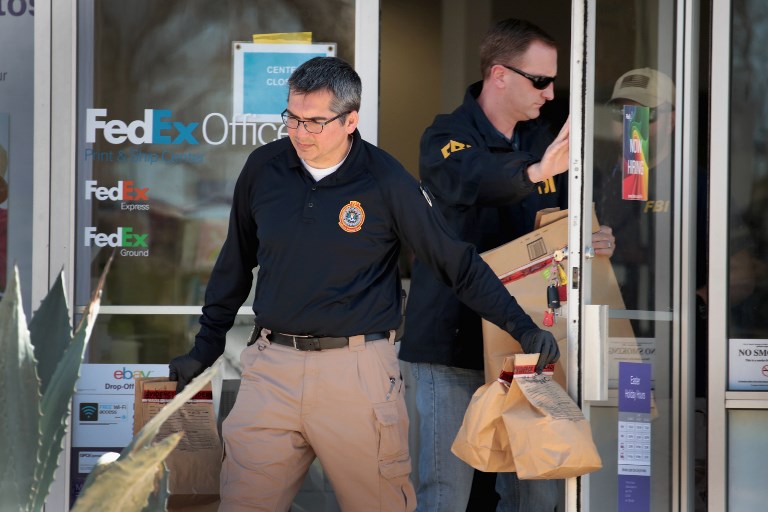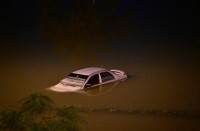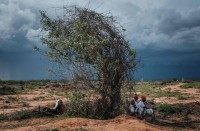
by Suzanne Cordeiro with Nova Safo in Chicago
© Agence France-Presse
AUSTIN, United States (AFP) — US President Donald Trump on Tuesday denounced a series of package bombings in Texas, calling those behind them “very, very sick,” following an explosion at a FedEx facility that officials said appeared to be linked to four others.
Until now, the spate of blasts that began in early March had been contained to Austin, the state capital with a population of nearly one million where two people were killed and several more injured.
But just after midnight, a package exploded at a FedEx distribution facility in Schertz, outside San Antonio. Authorities would not confirm media reports that the package contained metal shrapnel and nails.
There were no serious injuries in the latest blast, but officials believed the attacks were related.
“It was mailed from Austin, it was to an Austin resident and it blew up on the conveyor belt,” state attorney general Ken Paxton told KXAN television.
US Congressman Michael McCaul, the head of the House Homeland Security Committee who said he had spoken to law enforcement, added: “All these devices are very similar.”
There were conflicting reports from law enforcement about a second package, but FedEx claimed it had discovered one sent by “the individual responsible” for the initial explosion — a potential break in the case as investigators tried to identify the perpetrator or a motive.
“We have provided law enforcement responsible for this investigation extensive evidence related to these packages and the individual that shipped them collected from our advanced technology security systems,” FedEx said in a statement.
Another FedEx facility near the Austin airport was evacuated as police responded to reports of a suspicious package there.
But police could not say whether there was a link to the serial bombings and continued to process the scene late in the afternoon.
“The bombings in Austin are terrible. Local, state and federal law enforcement working hand in hand to get to the bottom of it,” Trump said, in his first public response since the crime wave began.
“This is obviously a very, very sick individual or maybe individuals. These are sick people, and we will get to the bottom of it.”
‘No clue who this is’
Despite hundreds of police officers and federal agents working the case, authorities appeared to have few leads.
“We have no clue who this is, absolutely no clue,” Texas Congressman Brian Babin told the Fox Business Network.
“I’m sure the FBI and the law enforcement agencies that are looking into this have some tips, some clues, but I haven’t heard anything about it.”
Senator Ted Cruz said he had spoken to Austin’s mayor and police chief about the “coordinated attacks,” saying no effort should be spared to catch the bomber and “put him behind bars before anyone else’s life is at risk.”
“It’s truly horrific what is happening in Austin,” Cruz told reporters in Washington.
Austin’s police chief Brian Manley said the bombings seemed to be evolving.
The first three explosive devices were concealed in packages left at residents’ doorsteps. A fourth was detonated with a tripwire, which Manley said suggested a perpetrator who “shows a higher level of sophistication, a higher level of skill” than initially believed.
“And with what just occurred in Schertz, Texas, we’ve now brought in a new element that that device was actually going through one of the carrier services, instead of being hand-delivered,” Manley told an Austin city council hearing.
More than 1,200 calls have come in from residents since police urged them to report suspicious activities and items, Austin police said.
“I will reach out to the suspect or suspects and ask that you contact us… communicate with us so that we can put this to an end,” Manley said.
Authorities increased the reward offered for information leading to an arrest, bringing the total bounty to $115,000.
© Agence France-Presse







